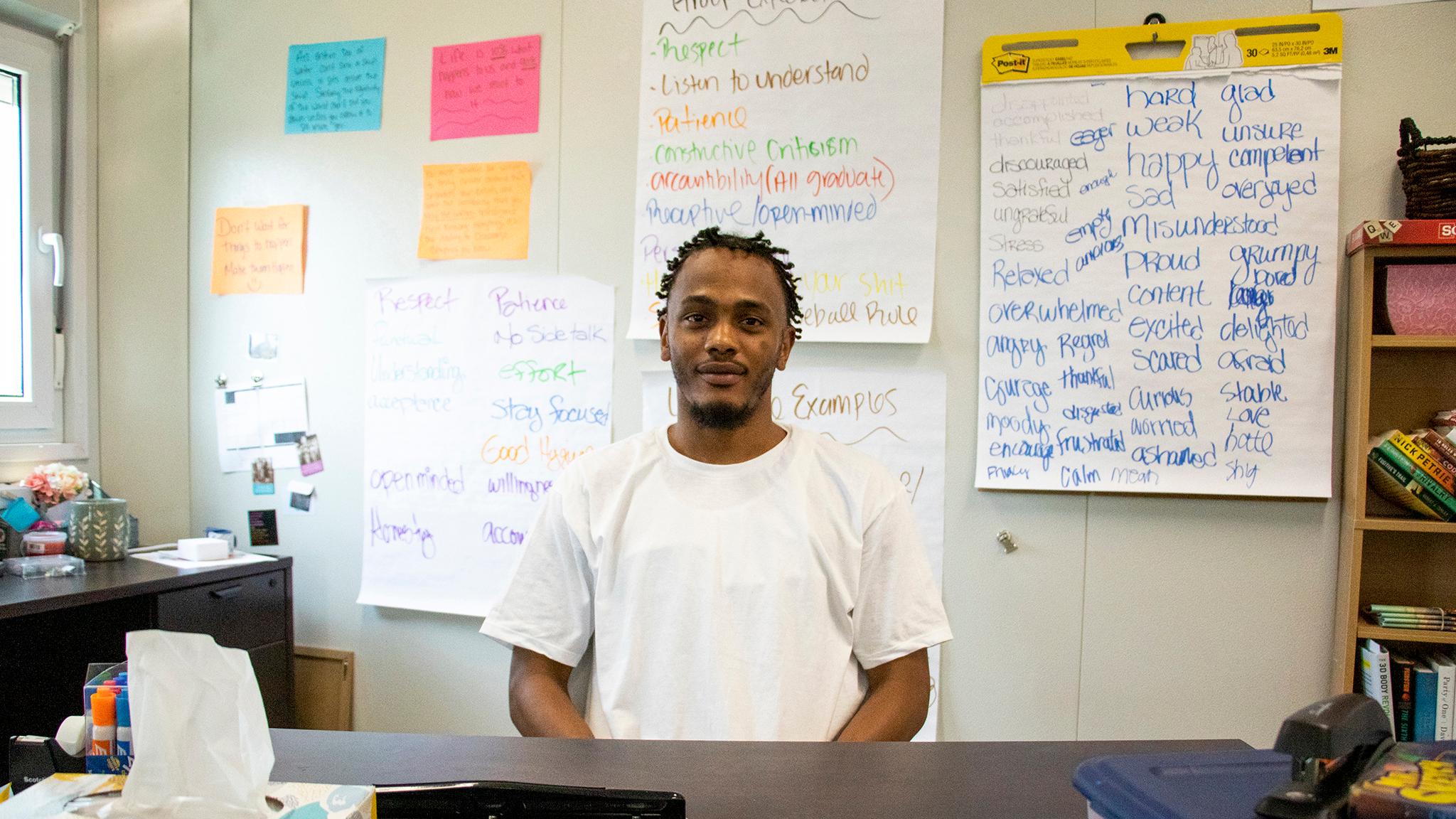Julio Givens arrived in Colorado for a visit in 2013. He never left.
He'd been playing basketball for Allen Community College in Iola, Kansas. They'd just won their championship game, and he headed west to celebrate.
He said he got involved with the "wrong people," and it wasn't long before he was arrested on felony burglary charges and vehicle theft. He spent time in prison and then was released on parole. But keeping his nose clean proved difficult.
"I got out, I messed up, got caught up in an addiction and I got sent back," he said.
Givens is 25 today. He's spent four of the last six years in prison. He said he's homesick and that his family misses him. But even though he hasn't been allowed to return to Kansas, he's happy he's not living in a state penitentiary as he chips away at the rest of his sentence. Givens is more than 40 days into a 90-day rehabilitation program at Tooley Hall, a halfway house in northeast Denver.
Service providers at the facility focus specifically on "cognitive behavioral therapy," known as CBT. It's a program that officials say is unique to Colorado's criminal justice system. People assessed to be at high risk for re-incarceration, like Givens, spend three months in intensive therapy classes without access to the outside world. They attend group classes and one-on-one sessions with clinicians. The goal is to rewire inmates' thought processes: to encourage them to think ahead about consequences of their actions, to recognize triggers that lead to bad behaviors and to accept responsibility for the decisions that landed them behind bars in the first place.
Officials describe the program as a progressive measure, a new approach beyond throwing the book at people who might commit crimes again and again because of the way their brains work. It was created as a five-year pilot, based on research, to see if this new path might lead to success. But today, midway through their study, the program may be in jeopardy.
Tooley Hall's program is operated by GEO Care, a subsidiary of a massive private prison company that has been under fire for its involvement with immigration detention centers. A few weeks ago, Denver City Council voted against renewing halfway house contracts with GEO and CoreCivic, which also operates immigration prisons.
The fate of the roughly 500 inmates in facilities run by these two companies is still unknown. About two-thirds of those people face the possibility of returning to prison, while the remainder were deferred from municipal jail and may have to see a judge for a new plan to pay their debts to society.
The pilot at Tooley Hall, or at least its continuity, is also in limbo.
The progressive vote could make things difficult for a progressive program.
Whitney Lovett was working as a behavioral health specialist when she had an opportunity to join the effort at Tooley Hall.
Tooley Hall was once a halfway home for women that promised a "healthy, drug-free, safe and secure environment" for reintegration into society. But an investigation by Westword's Alan Prendergast showed that conditions there were not as rosy as the operator at the time, Community Education Centers, promised. The facility's longtime director ended up stepping down after the story was published.
That was 2015. A year later, Colorado's state corrections task force recommended that lawmakers fund measures to shrink Colorado's recidivism rate, which is higher than national averages, and Tooley Hall was given an opportunity to become something new. The women were moved to a halfway home at Williams Street and 18th Avenue, and the men's CBT pilot launched there in 2017. Lovett has worked there since the beginning.
The program's operating guidelines were founded on research that suggested 250 hours of CBT can significantly reduce chances that "high-risk" offenders commit crimes after leaving prison. When the pilot began, follow-up studies hadn't been completed to confirm these initial findings.
Greg Mauro, director of Denver's Division of Community Corrections, told Denverite that Tooley Hall's program was meant to answer this research question and see if they could impact futures for people like Givens. He added that Tooley Hall is not the only halfway house that provides CBT, but the intense, full schedule of therapy makes it "unique" in the state.
Lovett has always worked with people experiencing acute mental illness, but she had no experience dealing with incarcerated people. The prospect did not scare her.
"Being completely honest, the idea of bringing treatment to community corrections was really, really, really exciting," she said during an interview inside a prefab classroom at Tooley Hall, one of a stack of shipping containers behind the facility's residential section.
The pilot represented a "brand new thought process" for helping people who, she said, are often "overlooked in terms of treatment needs."
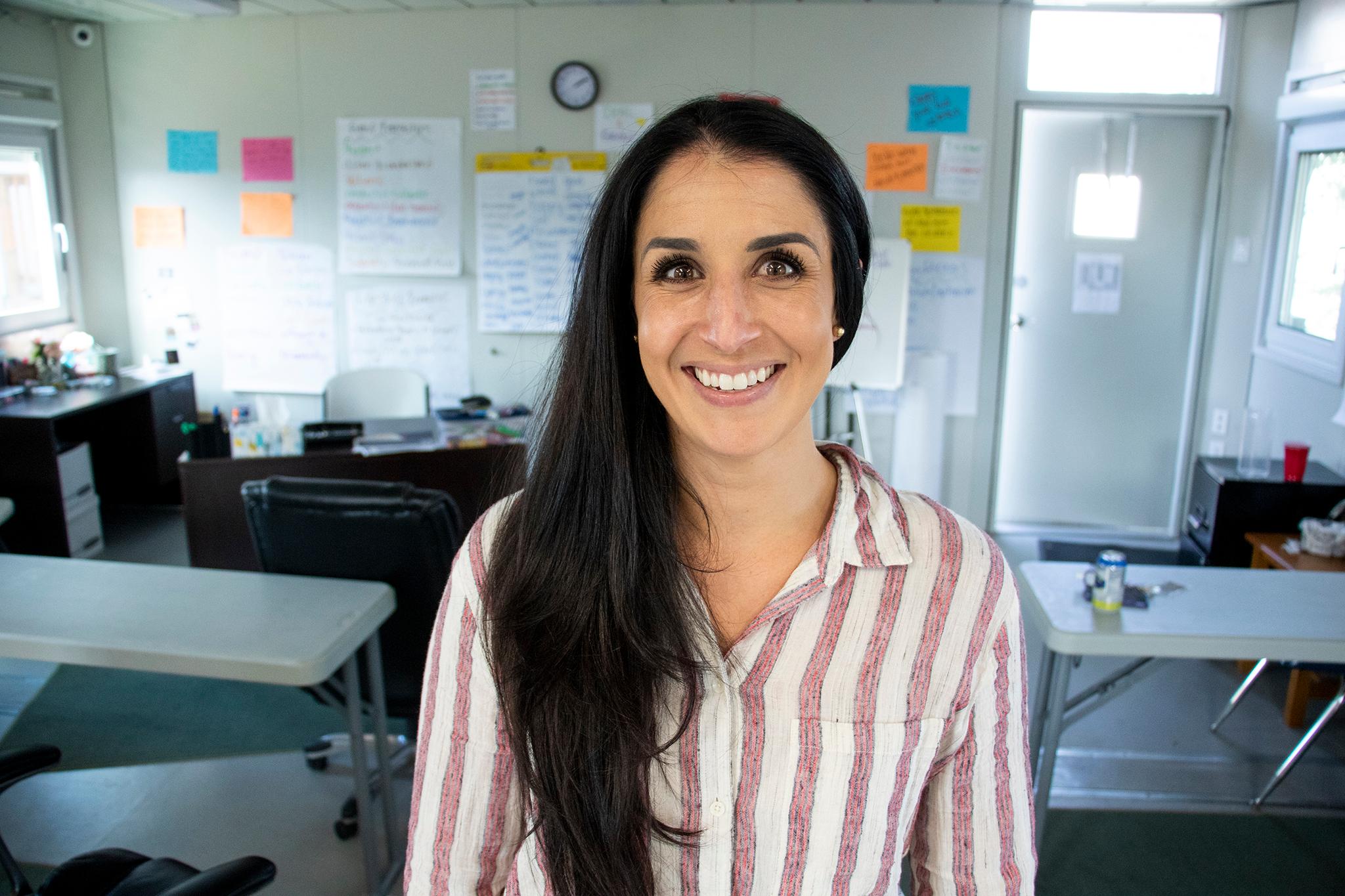
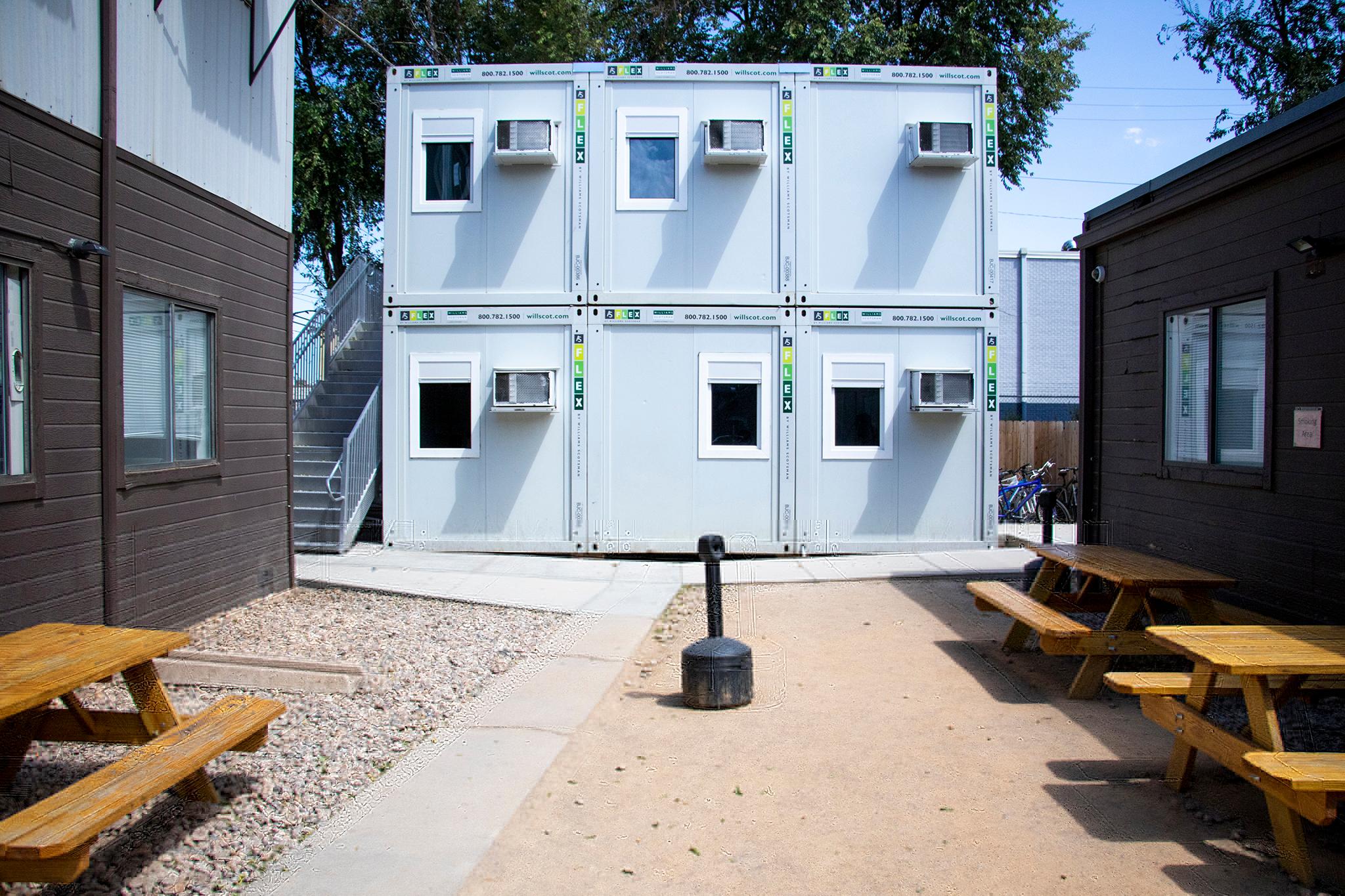
She and her team were given a general mandate and a goal, but it was up to them to figure out the specifics. She said the program has matured in the years since it was founded. It offers inmates individualized counseling that, in her mind, "breaks the mold" in typical corrections care.
Givens said he's spent time inside a number of halfway houses. Most of the time, staff offered little help if he needed assistance filling out forms or signing off on his required chores. He said it felt like they wanted him to fail. But Tooley Hall, he said, is different.
"I'm actually speaking to somebody about my problems," he said, "somebody just actually interested to listen and interested to help me make a positive change within myself."
Jeff Bradley, who's recently completed the program and still lives on site, described it as a much-needed time of reflection after decades of acting first and dealing with the consequences later. He sold crack and was involved with a gang in Georgia where he grew up. He tried to make a fresh start when he moved to Colorado 10 years ago, but he had trouble staying out of trouble and caught a charge not long after he arrived. Like Givens, he was arrested again soon after his first release here. He's now serving a 14-year sentence.
The therapy, he said, "honestly is probably one of the best things that could happen to somebody who's made all the worst decisions."
He was alerted to City Council's vote the night it happened. Halfway house inmates have access to the internet at Tooley Hall. He read coverage of the decision that night and he's kept up with the matter ever since.
Bradley said he "kind of freaked out" when he heard the news. Returning to prison would be a step backward, especially since he's worked hard to improve his circumstance. Even so, he said his panic has mellowed. He can live with going back. He said he accepts that his choices landed him there in the first place. But he's made relationships with clinicians who are now concerned about their jobs and the program they built, and he said he's worried about them.
Lovett said she watched City Council's vote on a video stream as it happened. She said the decision made her "sad." She is one who's concerned that the pilot -- what she joked is her "baby" -- could be upended.
There's no telling what could happen next. It's on Mauro and his Denver Community Corrections team to make proposals for the council to consider.
This is not the first time that Tooley Hall's program has faced a disruption. In 2017, GEO Group acquired Community Education Centers and took over the pilot there.
Mauro described the program's first year as a year of discovery; there was no blueprint for something like this, and they had to make it up as they went. Its second year, he said, was one of transition as GEO took the reins.
GEO's acquisition of the program meant they also bought the building. Their takeover was less complicated than what will likely result from City Council's vote.
Halfway houses are only allowed to exist on properties with particular zoning. There are few available sites in Denver, and many already have existing facilities on them. The city can't force GEO or CoreCivic to sell the land, though they may come to an agreement as everyone tries to figure out what to do next.
Mauro said it's possible that another operator could take over Tooley Hall and the pilot program, but any possible outcome will be disruptive. That's problematic, since data from the five-year study could be impacted. Disruptions could also affect inmates' progress through the program. If an entirely new staff takes over, it could also mean the lessons learned over recent years may be lost.
"With any health care, mental health care, no matter where you go, continuity of care is key," Mauro said. "To sort of pivot away, or stop and start again, would absolutely have consequences."
He added his team is "working on any and all options" to present to the city, though he couldn't say whether specific program's like Tooley Hall's would be addressed in their first approach. His office is working to present the city with options. In the meantime, Denver and its halfway house operators are working together in good faith, without a contract. A representative from the mayor's office said the city will sign contracts to guarantee that work done in July and August, after its agreement with GEO and CoreCivic ended, will be compensated.
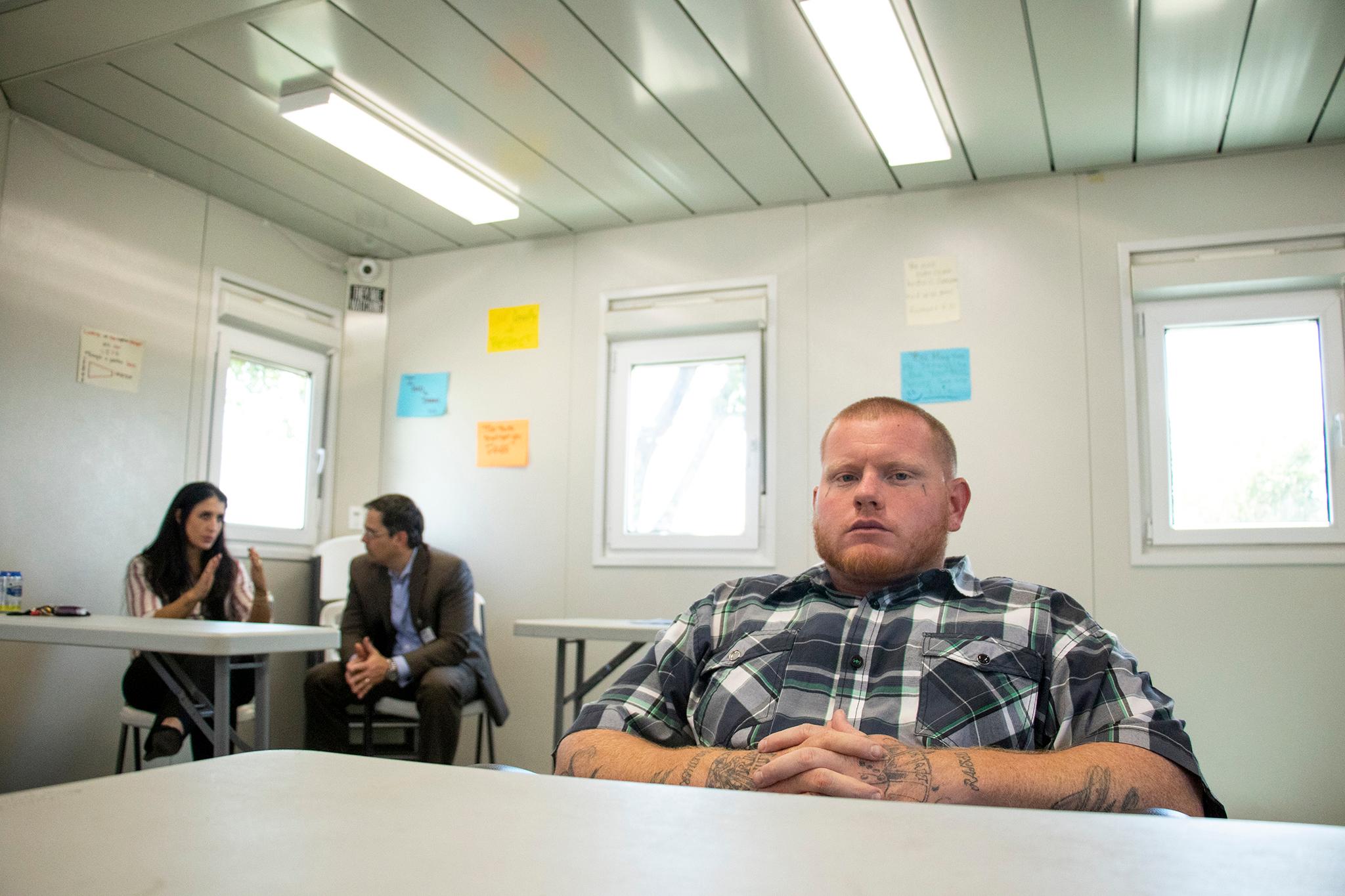
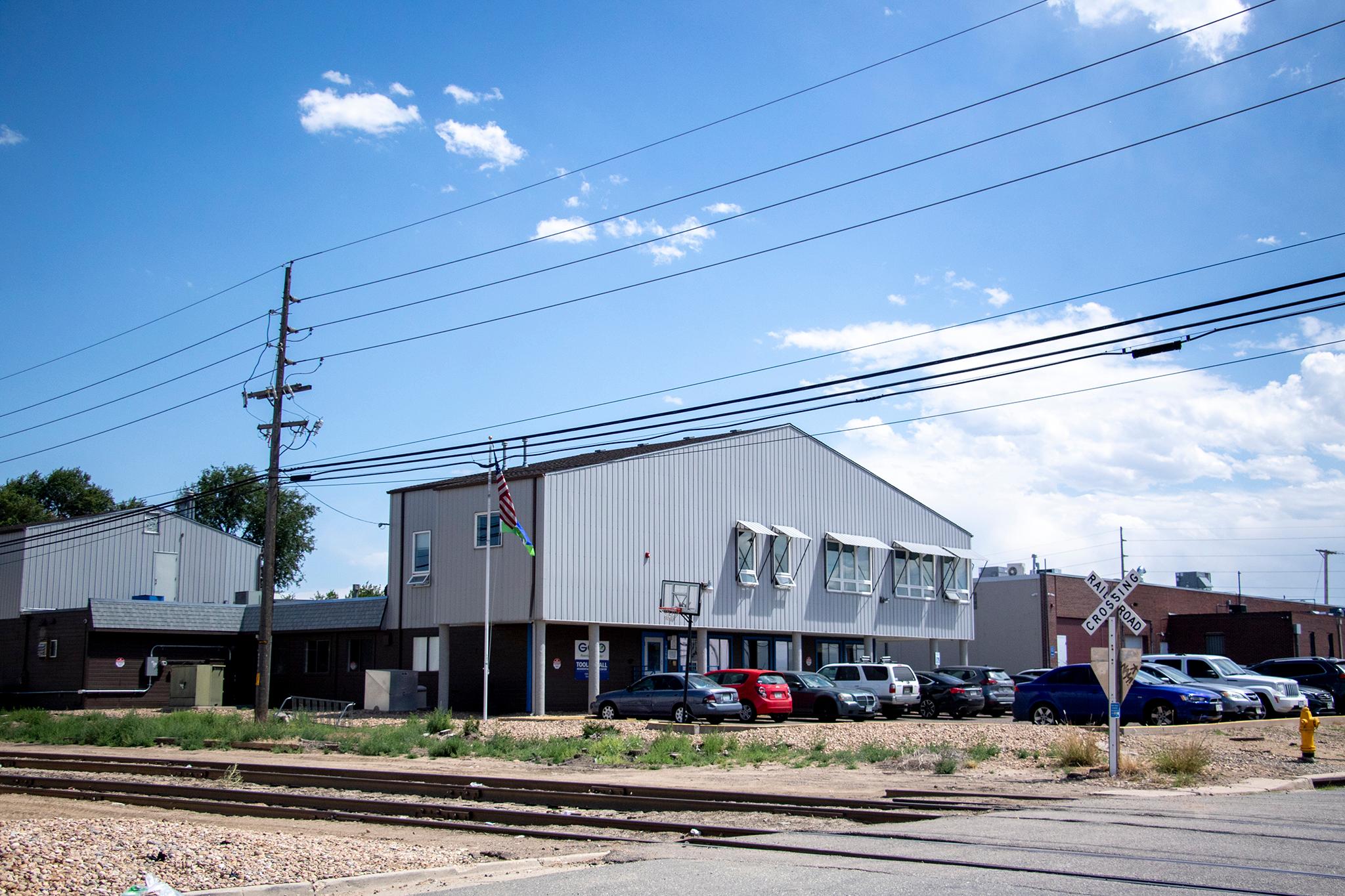
City Councilman Chris Hinds, one of eight "no" votes on renewing the contract, said he'd be fine with a general proposal to start: "I think there doesn't have to be every answer to every question."
He said he feels strongly that Denver shouldn't pay out to companies like GEO and CoreCivic that he believes aren't in line with the city's values. But he added that Council's ability to act is limited and makes this kind of change difficult.
Council members are only allowed a "yes" or a "no" vote on most matters, which he said is a "pretty narrow box." The state legislature, in contrast, is allowed to make amendments "on the fly" and handle nuances related to specific issues.
Hinds said he hopes another company with a better record might take over GEO and CoreCivic's work. The council is also aware of an unused property not far from Tooley Hall that's owned by the city and zoned for halfway houses that could be an alternate solution.
The vote, he said, is "not the end of Council's involvement."
Whatever happens, Lovett said she hopes the changes don't end up killing the program she enthusiastically helped to foster.
"I feel like this program has created forward momentum and progress in a new way, and so I would hate to see that momentum just kind of stopped by whatever decisions were made," she said. "That momentum is really key, and that growth and that progress. So however that needs to move forward, I really hope that it can."

